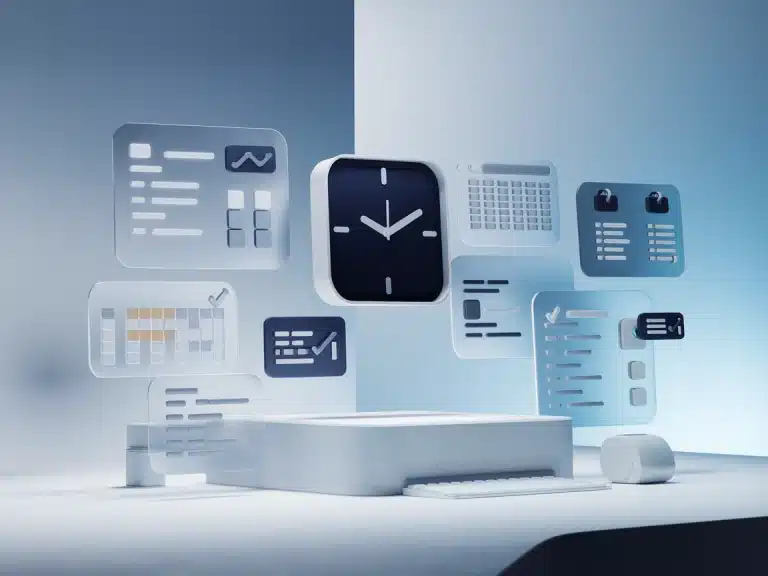Introduction:
Effective time management isn’t just for adults—kids and teenagers can benefit immensely from learning how to manage their time efficiently. Developing these skills early on can help students balance their academic responsibilities with extracurricular activities and personal time. In this article, we’ll explore strategies to help children and teens manage their time better, offering practical tips and techniques tailored to different age groups.
1. Start with a Simple Schedule: Building the Foundation
For younger children, a simple visual schedule can be an excellent starting point. Visual schedules use pictures or icons to represent daily activities and can help kids understand and manage their time better. According to a study in The Journal of Applied Behavioral Science, visual aids are effective in helping young children grasp time management concepts.
Tip: Create a colorful chart or planner with images of daily activities. For example, use pictures of school, playtime, and bedtime to help kids follow their routines.
2. Teach Time Estimation: Understanding How Long Tasks Take
Teaching kids and teens to estimate how long tasks will take is a valuable skill that can improve their time management. This can be done through simple exercises where they guess how long it will take to complete a task and then check their accuracy. Research published in The Educational Psychologist suggests that time estimation skills can enhance students’ ability to plan and prioritize effectively.
Tip: Start with short tasks and gradually increase the complexity. Encourage kids to keep a log of their time estimates and actual time spent to help them improve their accuracy.
3. Use a Timer: Managing Time in Short Intervals
Using a timer can help children and teens stay focused on a task and understand the concept of time management. The Pomodoro Technique, which involves working for 25 minutes and then taking a 5-minute break, can be adapted for younger audiences. According to The Journal of Experimental Psychology, breaking tasks into manageable intervals can increase productivity and reduce procrastination.
Tip: Set a timer for study sessions or homework assignments and encourage kids to take short breaks in between. This helps them maintain focus and avoid burnout.
4. Create a Task List: Prioritizing Responsibilities
For older kids and teens, creating a task list can help them prioritize their responsibilities and manage their time effectively. A task list allows them to see what needs to be done and helps them stay organized. Research in The Journal of Educational Research highlights that creating and following task lists can improve time management and academic performance.
Tip: Encourage students to make a list of tasks for the day or week and use a planner or digital app to keep track of their progress. Teach them to prioritize tasks based on deadlines and importance.
5. Set Realistic Goals: Balancing School and Extracurricular Activities
Setting realistic goals helps children and teens balance their academic work with extracurricular activities. Encourage them to set specific, measurable, achievable, relevant, and time-bound (SMART) goals. According to The International Journal of Academic Research, goal-setting helps students stay motivated and organized.
Tip: Help kids set SMART goals for their schoolwork, hobbies, and personal development. Break larger goals into smaller, manageable steps and track their progress regularly.
6. Encourage Time Management Techniques: Teaching Effective Strategies
Introduce children and teens to various time management techniques that can help them improve their efficiency. Techniques like the Eisenhower Matrix, which helps prioritize tasks based on urgency and importance, can be useful. The Journal of Time Management notes that using structured techniques can enhance productivity and reduce stress.
Tip: Explain different time management methods and help them choose one that works best for their needs. Encourage them to experiment with different techniques to find what suits them.

7. Promote a Balanced Lifestyle: Incorporating Leisure and Family Time
Effective time management isn’t just about work and school; it’s also about maintaining a balanced lifestyle. Ensure that children and teens have time for relaxation, family activities, and hobbies. Research from The Journal of Adolescent Health shows that a balanced lifestyle contributes to better mental health and overall well-being.
Tip: Help kids schedule time for relaxation and family activities. Encourage them to participate in activities they enjoy and make sure they have time to unwind.
8. Monitor and Adjust: Adapting Strategies as Needed
Time management strategies should be flexible and adapt to changing needs. Regularly review how well the strategies are working and make adjustments as necessary. Research in The Journal of Behavioral Education highlights the importance of continuous evaluation and adaptation in improving time management skills.
Tip: Have regular check-ins with kids to discuss what’s working and what isn’t. Adjust their schedules and strategies based on their feedback and changing responsibilities.



